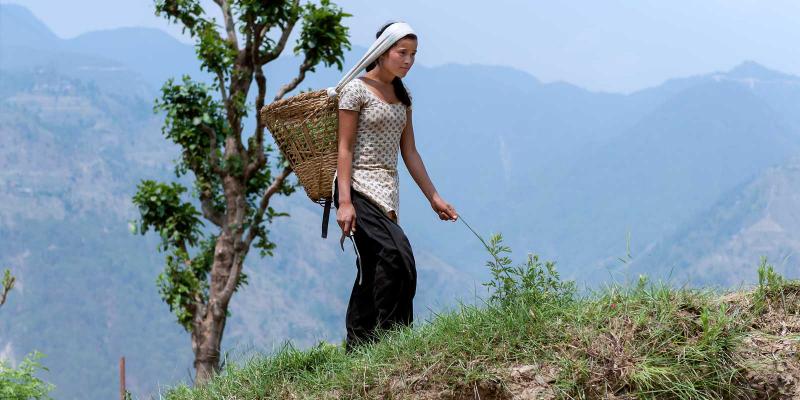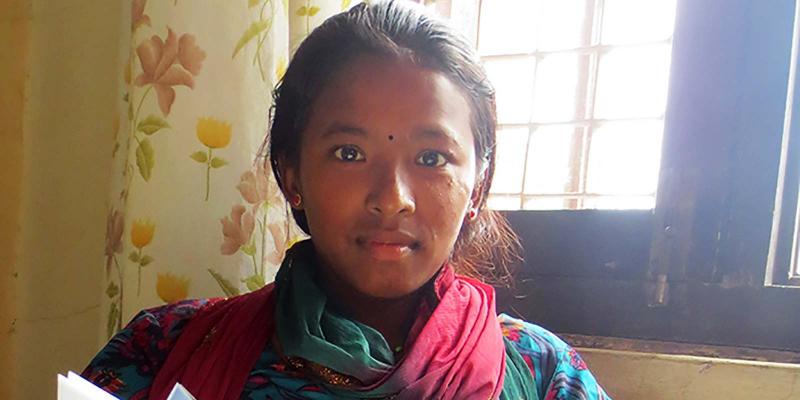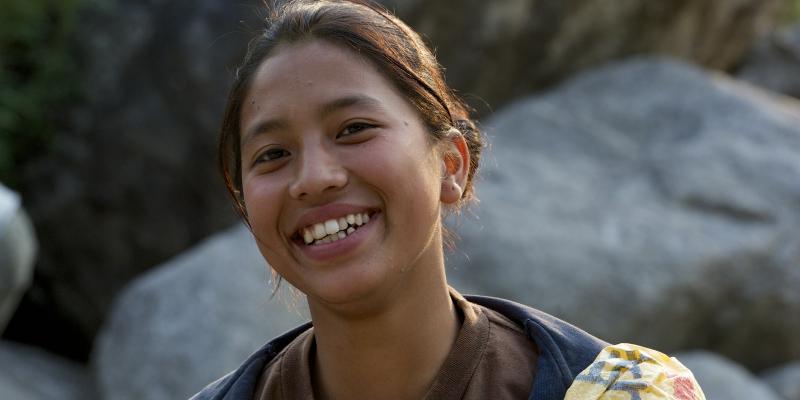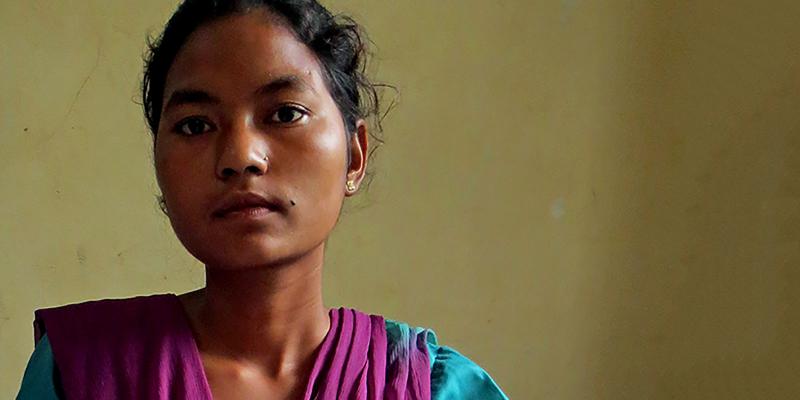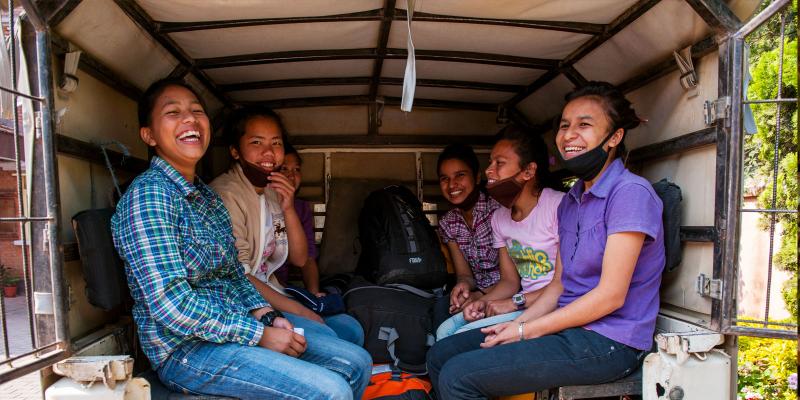Phulmaya, 11, lives in a remote village in Nepal that was hit hard in the earthquake. 29 people died, seven of them children. The village school and nearly all the houses were destroyed.
Phulmaya’s house was completely demolished, and she now seeks temporary shelter in a tent. Her family lacks food and all basic necessities. In addition, the risk for Phulmaya and other girls increases daily of being sold and used in the child sex trade. Human traffickers prey on children made vulnerable after natural disasters.
Strengthened by rights education
Phulmaya’s small village school is a World’s Children’s Prize “Global Friend-school”. Therefore, she and other children in the village have been trained by older girls who are World’s Children’s Prize Child Rights Ambassadors, about their rights and on how to protect themselves against traffickers. This is especially important now.
Before the earthquake, Phulmaya told us that she learnt about her rights and human trafficking from her school friend Dipa, who was trained as a Child Rights Ambassador by the WCP and Maiti Nepal. Dipa not only told children about the rights of the child and about trafficking – she told parents and teachers too. She walked from village to village on steep mountain trails with other Child Rights Ambassadors to raise awareness. All this to put a stop to trafficking and help people understand that girls have the same rights as boys.
“Dipa taught me that we are worth the same as boys. We girls have a right to a good education too. It’s also wrong to force girls to get married early, just because their parents think they can’t afford to provide for them,” said Phulmaya.
Girls disappear
In Nepal, it’s very common for girls from poor families to be promised well-paid jobs in other countries, often in neighbouring India. But these girls and their families are being deceived. The girls end up becoming domestic slaves in family homes or at hotels and restaurants. Or, worse still, they could end up as sex slaves at brothels. Around twelve thousand girls, many of them under sixteen and some as young as eight, disappear from Nepal every year. Most of these girls never come home again. This is what Dipa, and now Phulmaya too, wants to put a stop to.
“Girls like Phulmaya are at risk,” said Dipa. “Her family are very poor and are unaware of how common trafficking is. They could easily be persuaded to hand over their daughter for money.”
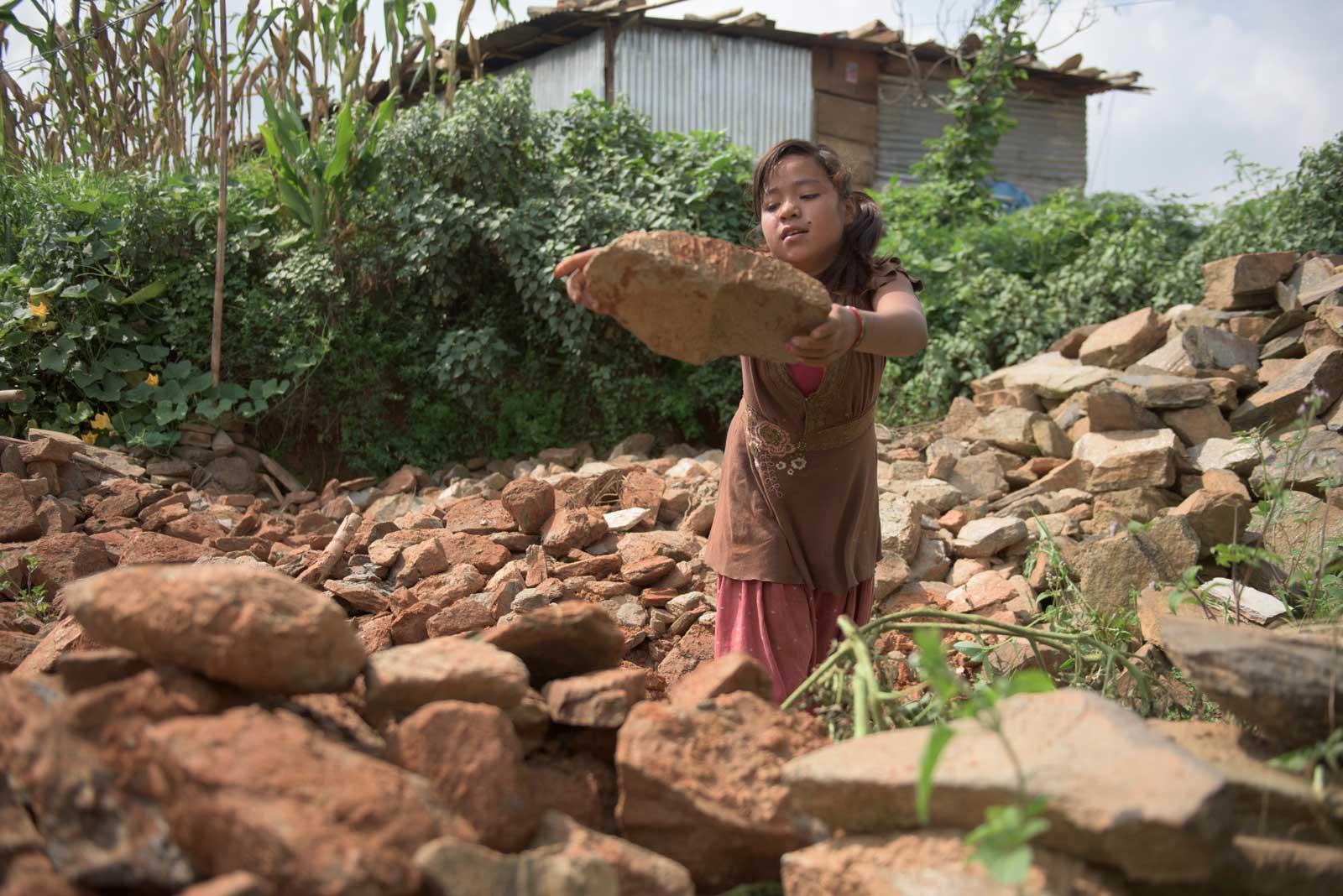
Phulmaya is still helping to clear away stones after the earthquake.
Phulmaya had always felt that it was unfair to treat girls and boys differently. But she didn’t know that it was a violation of her rights. Not until the Child Rights Ambassadors brought the World’s Children’s Prize to the village. "The Child Rights Ambassadors taught me that girls and boys are equal, and that we girls have the same rights as boys. That we too have a right to a good education and should be treated well and not forced to get married against our will. That made me really happy!” The Child Rights Ambas sadors who came to Phulmaya’s village live in a home run by Maiti Nepal, an organisation that fights against child sex slavery. “The ambassadors taught us a lot about trafficking. About how traffickers come to poor villages, just like ours, and trick parents into selling their daughters. The parents think their daughters are going to get a good job abroad or in the capital city, Kathmandu, and send money home. Instead the daughters become slaves in brothels and are forced to do awful things.” Phulmaya and her school friends learned that around twelve thousand girls disappear from Nepal in this way every year, mostly to India. The vast majority never come home again. “This is so terrible, it has to be stopped! When I met the ambassadors I knew straight away that I wanted to become a Child Rights Ambassador too, travelling round to schools and fighting for girls’ rights and against the slave trade in Nepal.” But then something happened that put a stop to Phulmaya’s plans to become an ambassador.
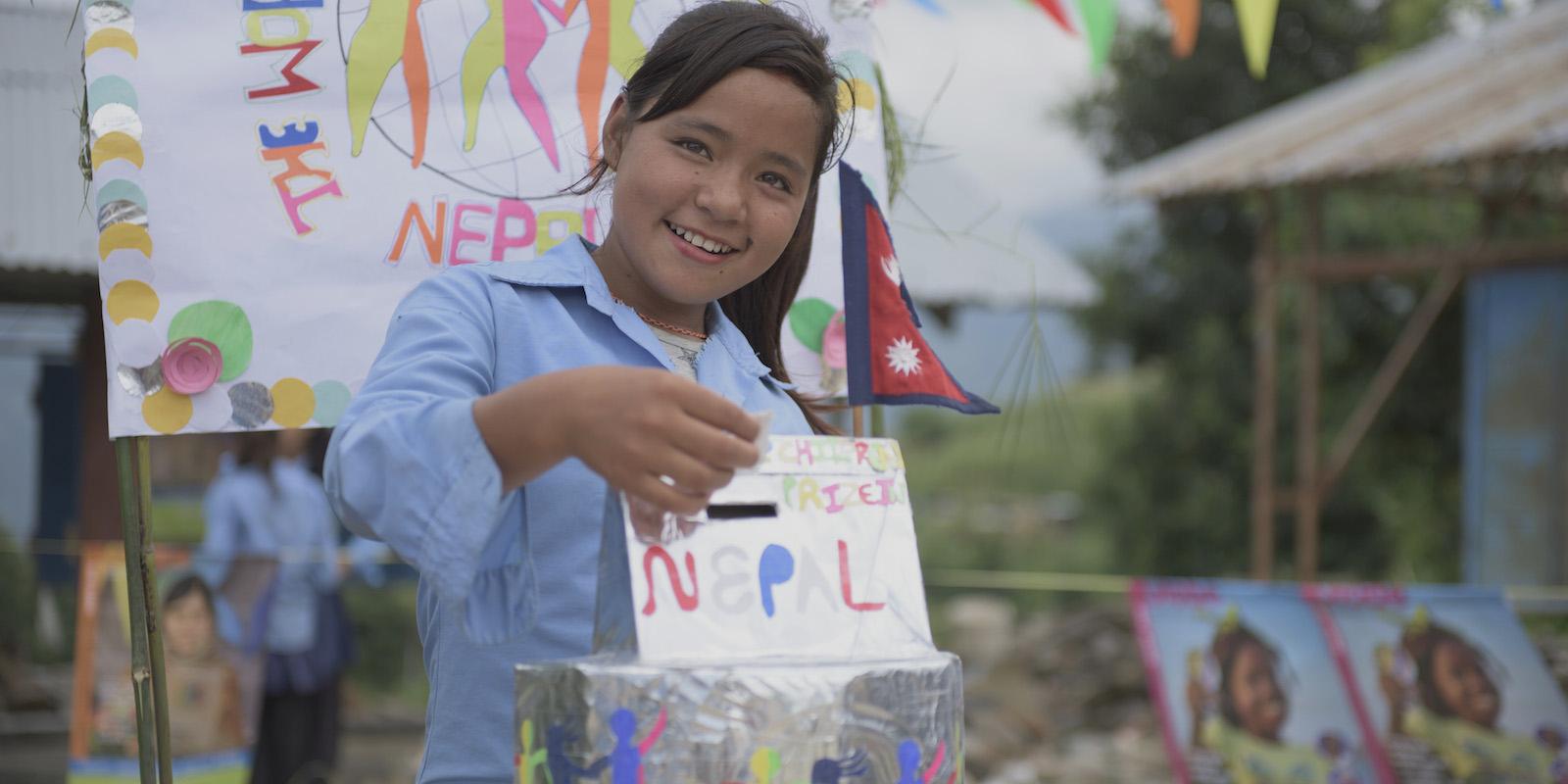
“Today I voted in our Global Vote and that feels important. The candidates fight for us children. By voting, I am showing that what they do is important, and that I support their work,” says Phulmaya.
The earthquake
“It was a Saturday. I was sitting eating lunch with my mother and a friend when suddenly everything started to shake. Glasses and plates crashed to the floor. Cupboards and shelves collapsed, the TV fell... everything smashed. I panicked and I was sure we were all going to die. My mother was shouting that we had to get out, out! And we just managed to get out before the whole house collapsed and turned into a pile of rubble. All the neighbours came running out of their houses as they collapsed too. “It felt unreal. Everyone was crying and screaming. We hugged and tried to comfort one another. My family was lucky, because everyone made it out, but my friend’s grandfather didn’t manage to get out before their house fell down on top of him. He died. Many people in Nepal died in the earthquake.” Phulmaya and her neighbours had to sleep on the street for the first few months after the earthquake. “There were fifteen of us, lying huddled on the ground. We had to share the blankets. Everyone was sad and crying. Some people said that tigers would come and find us there, unprotected. I was so afraid.”School destroyed Phulmaya’s school was destroyed too. The walls had collapsed and the desks, books, computers and all the other resources were buried under the rubble.
“I was afraid that I would never be able to come back to school.” At first, the people in the village struggled to find enough to eat, since everyone’s food stores were buried under rubble and the fields were swamped with mud.
“We were hungry, and we had to clear up. We built a little shack from tin and plastic, and we still live there. It’s OK, but I don’t really like it. It’s cramped and I have to sleep on the floor. It’s the rainy season at the moment and the shack leaks, so everything gets wet. I can’t wait till our new house is ready.”
While Phulmaya’s family and all the others were clearing their ruined houses, they were also trying to get the village school going again. After a month of hard work, the students were finally able to come back.
“It felt great to see all my friends and start learning things again. Before the earthquake our school was really beautiful, but it isn’t any more. The outer walls are gone, and the books, and lots of other things. But it still feels good to be back.”
Related stories
Långgatan 13, 647 30, Mariefred, Sweden
Phone: +46-159-129 00 • info@worldschildrensprize.org
© 2020 World’s Children’s Prize Foundation. All rights reserved. WORLD'S CHILDREN'S PRIZE®, the Foundation's logo, WORLD'S CHILDREN'S PRIZE FOR THE RIGHTS OF THE CHILD®, WORLD'S CHILDREN'S PARLIAMENT®, WORLD'S CHILDREN'S OMBUDSMAN®, WORLD'S CHILDREN'S PRESS CONFERENCE® and YOU ME EQUAL RIGHTS are service marks of the Foundation.



